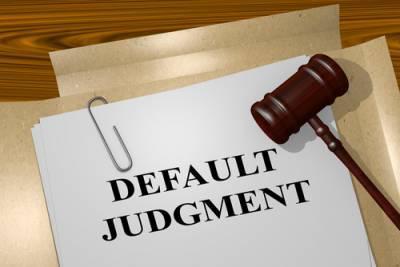Default Judgments
 In Texas, a person filing for divorce must serve his or her spouse with a copy of the petition for divorce. The recipient is then required to file a written answer within a certain time period. Failing to do so can have serious consequences, including the issuance of a default judgment against the respondent, so if you have been served with a petition for divorce, it is important to contact an experienced complex divorce attorney who can explain your legal options.
In Texas, a person filing for divorce must serve his or her spouse with a copy of the petition for divorce. The recipient is then required to file a written answer within a certain time period. Failing to do so can have serious consequences, including the issuance of a default judgment against the respondent, so if you have been served with a petition for divorce, it is important to contact an experienced complex divorce attorney who can explain your legal options.
Procedural Requirements
To initiate a divorce, one party must file a petition containing all of the basic information about the couple, including the date of the marriage, the date of separation, and the ages and names of any children. The petition will also contain requests for the court regarding property division, child support, and custody. The respondent must then submit an answer, which simply acknowledges the receipt of the divorce petition and states whether the respondent agrees or disagrees with the petition. The answer should also clearly state the recipient’s position on the other spouse’s statements and proposals.
Although it is not a complex document, failing to file it in a timely manner can seriously affect the outcome of divorce proceedings. For example, if a respondent does not return the answer, the court will assume that he or she agrees to the terms offered by the other spouse. A court may then enter a default judgment, which means that the respondent will no longer have the opportunity to make his or her case regarding property division or child custody arrangements.
Respondents are permitted to file motions asking the court to set aside default judgments. However, this can be extremely difficult, as a respondent would need to provide a strong legal argument to support the motion. For instance, courts have stated that in order for a default judgment to be set aside, courts must analyze specific factors, including:
- Whether the failure of the respondent to answer was unintentional and not the result of indifference, but was due to a mistake or accident;
- Whether the motion for a new trial includes a worthy defense; and
- Whether granting the request would cause a delay in the proceedings or injure the petitioner.
If a respondent is able to satisfy all of these requirements, he or she may have a default judgment set aside.
Contact an Experienced Complex Divorce Attorney Today
http://www.txcourts.gov/media/1084233/Texas-Rules-of-Civil-Procedure.pdf




 512-610-6199
512-610-6199
